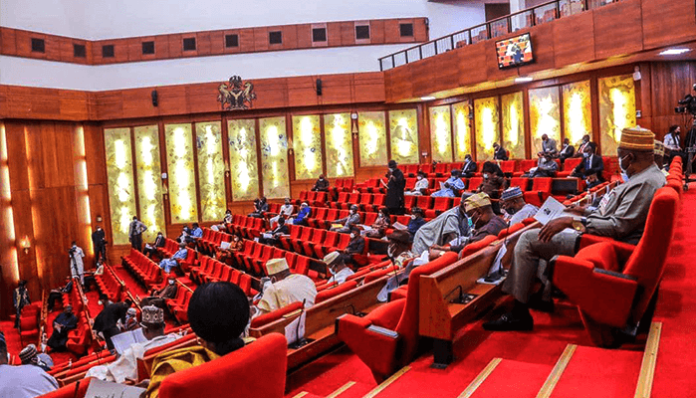The Senate Committee on the Review of the 1999 Constitution has disclosed its plans to involve the public to contribute to its review of the 1999 Constitution, as it will commence plans to organise a comprehensive two-day public hearing in the country’s six geo-political zones.
The zonal public hearings, which are slated for July 4 and 5, are part of an extensive national consultation process aimed at capturing citizens’ voices on critical issues shaping the future of governance in Nigeria.
Deputy President of the Senate, Senator Barau Jibrin, who doubles as the Senate Constitution Review Chairman, said the public hearing will be held simultaneously in Lagos (South West), Enugu (South East), Ikot Ekpene (South South), Jos (North Central) Maiduguri, (North East) and Kano (North West).
According to a statement issued by Ismail Mudashir, Special Adviser on Media and Publicity to the Deputy Senate President and Committee Chairman, Senator Barau I Jibrin, on Sunday, the hearings will be held simultaneously in Lagos (South West), Enugu (South East), Ikot Ekpene (South South), Jos (North Central), Maiduguri (North East), and Kano (North West).
Barau revealed that the committee will entertain over 50 proposals addressing a wide range of national concerns, from local government autonomy to gender representation, state police, judicial timelines, and even the creation of new states.
“This is a critical moment for our democracy. We are calling on all Nigerians to be part of this national dialogue. The aim is to ensure that the voices of citizens are reflected in the constitution that governs them,” Barau said.
The statement noted that at the heart of the conversation are two bills seeking to grant full autonomy to Nigeria’s 774 local governments, as well as setting up an independent electoral body to oversee local elections — a move that is designed to free local politics from the grip of state governments.
The hearings will also spotlight hot-button issues like the creation of state police forces and state security councils to tackle insecurity with tailored local approaches.
In the area of fiscal governance, six bills have been proposed, including one mandating a timeline for governors and the president to submit annual budgets, and another strengthening the Revenue Mobilisation, Allocation and Fiscal Commission to ensure accountability in public finance.
Additionally, 31 separate requests for new states — from all six zones — are on the table. These include seven from the North East alone, as well as multiple proposals from the South West, South South, and North Central.

